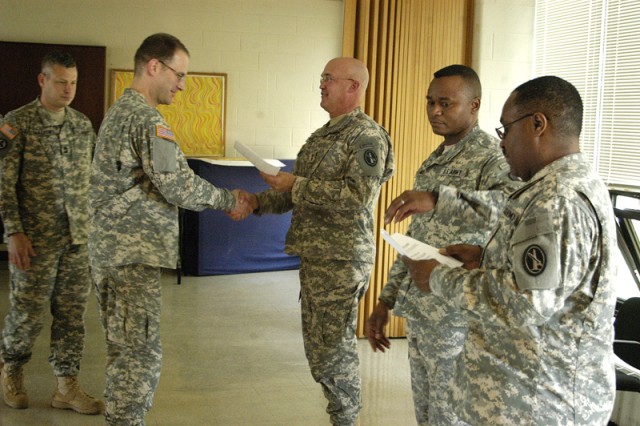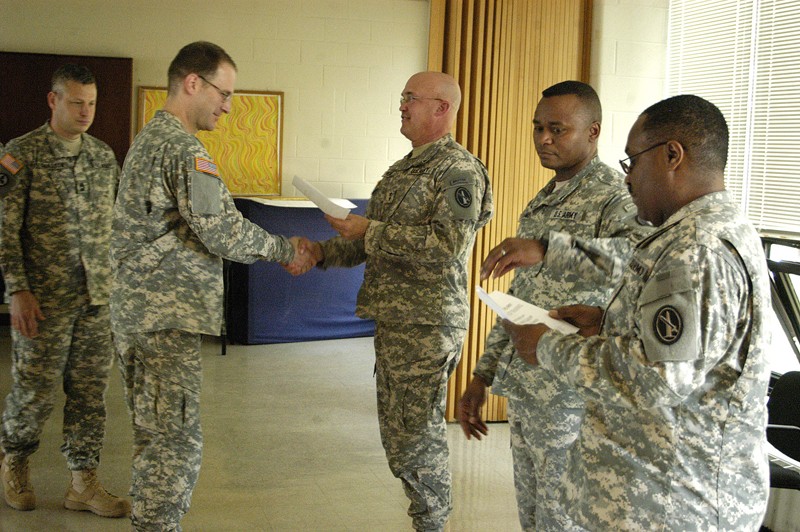The first of two annual Joint Force Headquarters-National Capital Region and Military District of Washington Commanders and First Sergeants Training sessions concluded Wednesday, ushering 16 noncommissioned officers through a three-day course designed to make them effective leaders.
Class participants gathered in a Memorial Chapel training room and listened to a variety of officers and senior NCOs discuss what resources are available to them in the National Capital Area and what issues they might encounter as commanders and first sergeants.
The course exposes senior NCOs to real world scenarios by bringing in leaders who share their experiences as commanders and first sergeants with Soldiers, said Command Sgt. Maj. Adolph George, the command sergeant major for JFHQ-NCR and MDW Inspector Generals office.
Representatives from the chaplains office, retention, finance, equal opportunity and other areas were brought in to talk to Soldiers.
"The class is mandatory for newly assigned company commanders and first sergeants in the National Capital Region," George said. "It gives them information on NCR that will help them be successful in their command.
"It gets them educated on a lot of stuff and provides the tools to put in their kit as leaders," said Robert Walker, assistant IG for JFHQ-NCR and MDW, who leads the class with George.
Fort Belvoir Garrison Commander Col. Jerry Blixt and post Command Sgt. Maj. Gabriel Berhane addressed Soldiers Wednesday afternoon.
"Think a couple of levels up the chain of command," Blixt advised his audience. "Empower people to do their jobs then make them do it."
"Nothing will be decided without the first sergeant's input," he said, later cautioning, "There are going to be times that you'll have to utilize personal courage and tell people something they don't want to hear."
The class concluded with JFHQ-NCR and MDW Commander Maj. Gen. Karl R. Horst sharing anecdotes from his 38-year military career.
"I am where I am today because of the role of NCOs in my professional development," Horst said. "It's what separates us from other [countries'] armies - a sturdy cadre of professional NCOs."
"This course is designed to make you think differently," Horst emphasized. "When you put those stripes on, your life changes. You need to get your leader lights on as a senior noncommissioned officer."
No matter how high your rank, you must continue to learn and absorb information, Horst said.
"Education is a journey, it's not a destination," he said. "No matter what your level there is still professional development that's available to you."
"It's been an eye-opener," said class participant Master Sgt. Donald Palmire of the U.S. Army Band "Pershing's Own." "They've told us a lot of things we hadn't thought about ... like Army Emergency Relief and scholarships that are available to Soldiers."
"I've been a first sergeant for three years and I'm still learning about new regulations," said Master Sgt. Shannon Carithers, a Soldier with 12th Aviation. "[The training] gives you the toolbox to do your job."


Social Sharing